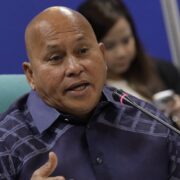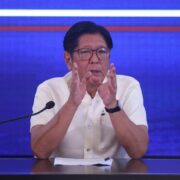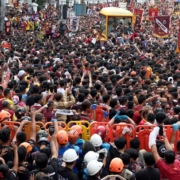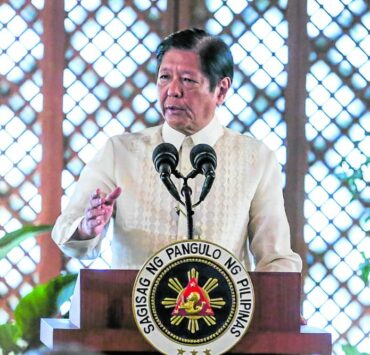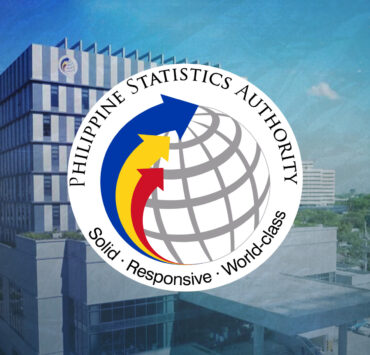Experts: Trump’s pitch on economy swayed 72M voters
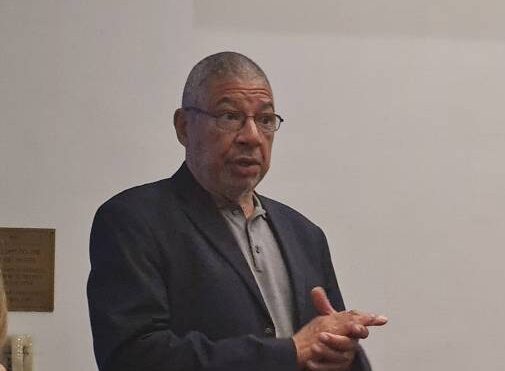
A convicted felon serving as president of the most powerful country in the world would have been inconceivable years ago. But Donald Trump, the United States’ 45th president and who is set to serve as its 47th, has defined the unthinkable.
This has prompted experts to consider how his unorthodox campaign and divisive rhetoric resonated with the 72 million Americans who voted to bring him back to the White House.
For Temple University professor and award-winning journalist Linn Washington Jr. and Filipino disinformation researcher Jonathan Corpus Ong, it all boiled down to the economy and inflation. Trump’s promise of lowering the cost of goods has attracted even populations that were expected to swing Democrat, including Black and Hispanic people.
Real, urgent concerns
“It looks like Trump was able to increase his support among Black men and Latinos because they felt that Trump could handle the economy,” Washington said. “But the economy that Trump inherited (from his first term as US president in 2016) was the economy from Barack Obama, who had literally brought the country back from (near) economic collapse.”
Ong said the Democratic candidate, Vice President Kamala Harris, grossly underestimated the public’s “very real and very urgent concerns” and instead centered her campaign on keeping Trump out of office and retaining much of President Joseph Biden’s core policies. This included the Biden administration’s Middle East policy and refusal to reverse the US support for Israel’s conquest of the Gaza Strip, even though Harris supporters were vocal about a ceasefire.
“[T]he plain truth was that the working class has been struggling and they are sick of being gaslit that everything is fine. They’re not OK with the cost of groceries, the rising cost of housing,” Ong said.
He added that Harris gave no concessions to progressive reforms. “The core message was that democracy was on the line but she offered no alternative vision … how do you reconcile that with your argument that you don’t need to change any of Biden’s policies?”
Washington offered a more generous view, saying that Harris had run an incredible campaign “but the reality is that she was running an uphill campaign from the beginning,” referring to when she swapped in for Biden after his disastrous performance in the first debate with Trump.
Parallelisms with Marcos
Trump’s win, they added, could also be attributed to disinformation and influence operations, more specifically, to the rise of right-wing communicators like podcaster Joe Rogan and X founder Elon Musk who have replaced mainstream media as mediators.
“Trump and his allies have made an enemy of the press and tagged them as the enemy of the people,” Washington said. “Of course, I see what the media is doing and they have been an enormous resource for the public but they don’t always get the context.”
Ong parallels how President Marcos repudiated legacy media during his 2022 campaign, relying instead on influencers and vloggers to “directly mobilize and talk to their own communities … rather than being held in accountability spaces like a debate format.”
Regardless of what happened, both agree on the grim prospects under Trump’s second term. If during Trump’s first term, for example, he had at least surrounded himself with competent advisers—who now mostly disavow him—the incoming 47th president has “probably learned from his last administration and will bring in a lot of people who are loyal to him, who will not challenge him on anything,” Washington said.
Ong, meanwhile, foresees that Trump would more likely expand his crackdown on the media to go after “knowledge-producing institutions: universities, education, scientists, so they can discredit certain bodies of knowledge like climate change, critical race theory, journalism studies, social and racial history, gender and ethnic studies.”
“They will target us all,” he said. “We will no longer have the capacity to argue from authority.”
Systemic inequities
Trump has been indicted between March and August 2023 on four separate charges, including business fraud and election interference—the first former president in American history to be charged with either state or federal crimes.
Trump’s comeback, however, was not surprising especially because the United States, since its founding in 1776, has never resolved the “deep-seated and systemic discrimination” that pervades its society, Washington said.
“There is a history in America of suppressing the rights of black people to vote, suppressing the rights of women to vote, suppressing the rights of Latinos and other minorities to vote in America. And that’s what we’re seeing through to this day,” he said.
“So this issue of systemic inequities in America is not based solely on a particular party, it’s the philosophy in America. And that’s what too many people just push aside: they say, ‘This is not who we are, we’re better than this.’ No, this is exactly who we are. And that’s why we are where we are today.”




